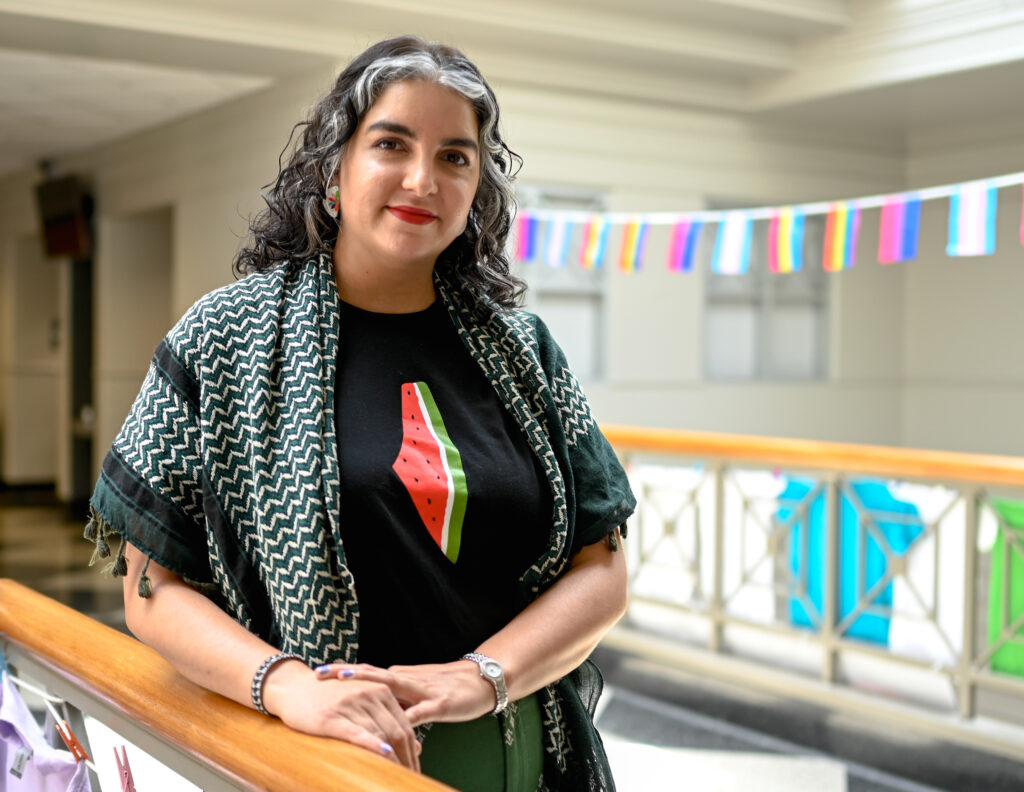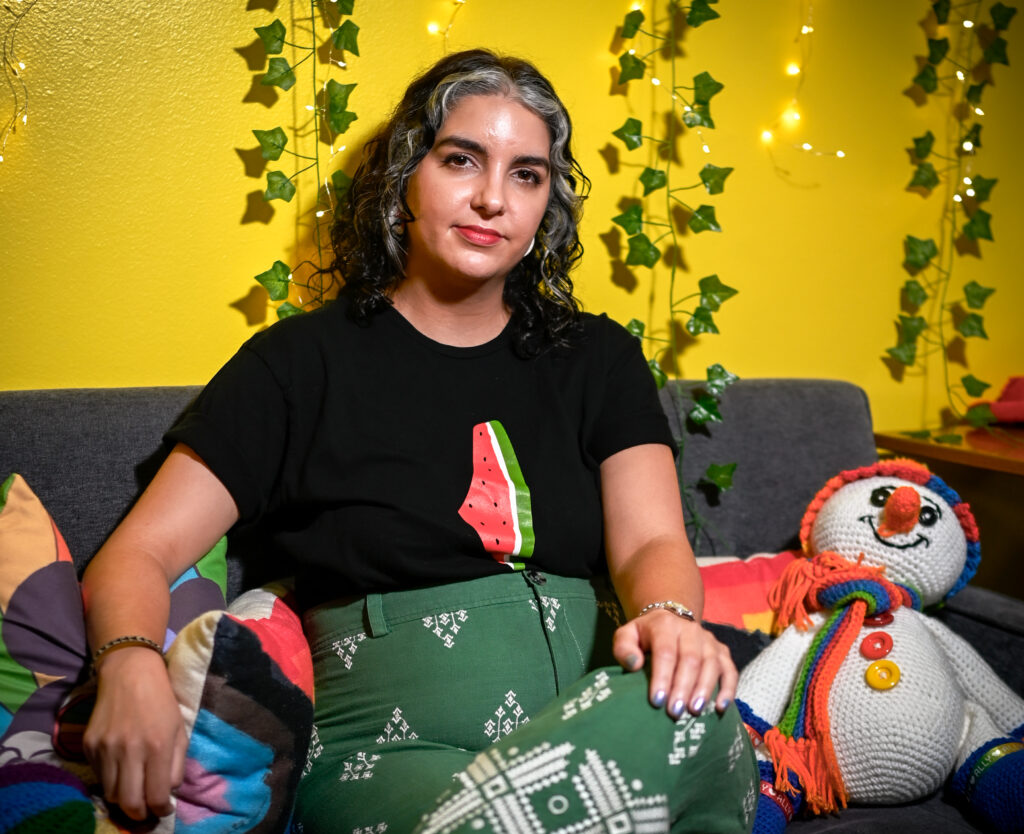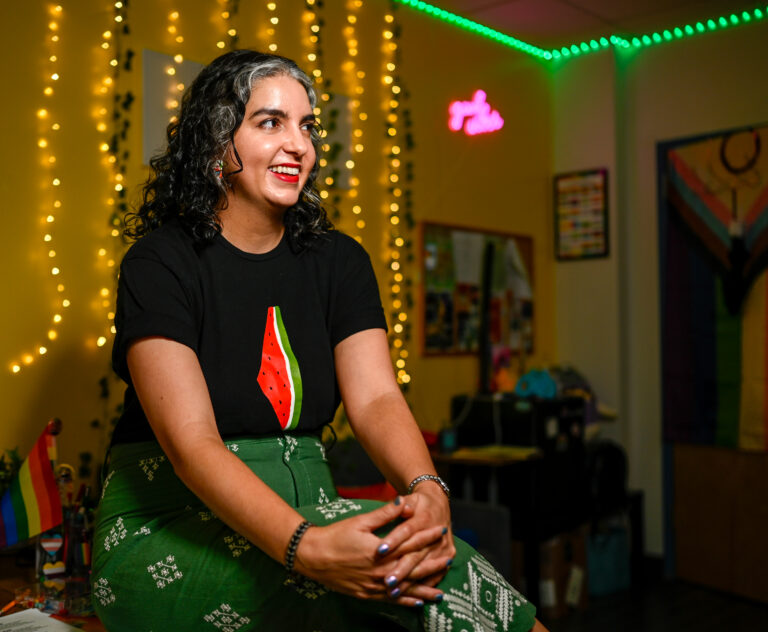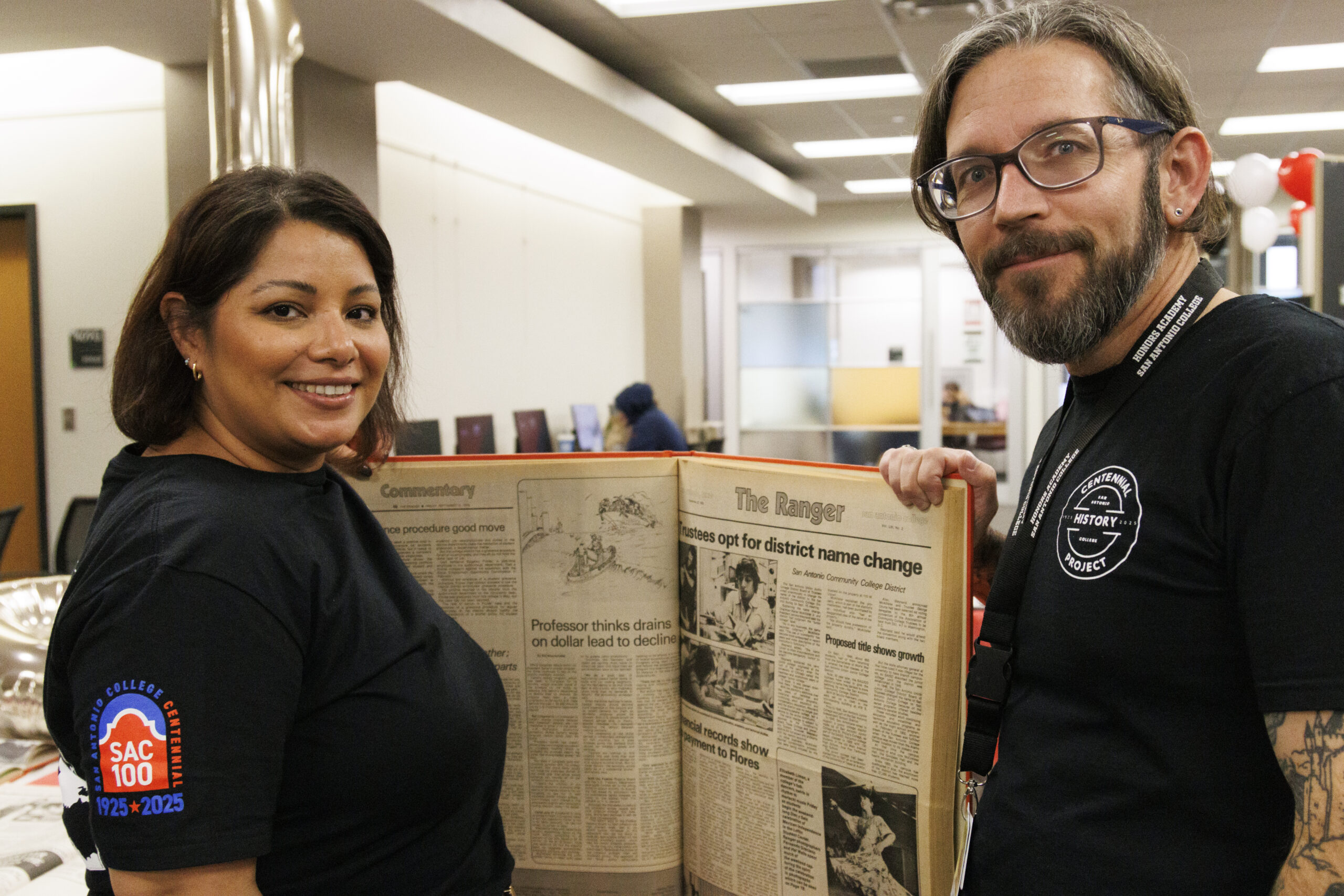It’s almost 10:50 on a Monday morning in room 314 of the Chance Academic Center, and students are trickling into Dr. Suraya Khan’s American History class. Soft jazz permeates the space as Khan greets each student with a smile and “Good morning.” At 10:50, she takes her place at the front of the room and opens class with a question: “How was everyone’s weekend?”
“She’s really attentive,” Ainsley Kendrick, a mortuary science major, told The Sundial. “You can tell she wants to listen and deal with any issues you are having.”
Like many of her students, Khan was one of the first in her family to attend college, and she starts each semester with a survey to understand her students’ needs.
“I have a lot of empathy for the things that my students are experiencing,” Khan told The Sundial. “In my start-of-the-semester survey, many students tell me they’re working 40, 50, 60 hours a week.”
Empathy provides the foundation upon which Khan’s teaching philosophy is built, and she seeks to engage students with diverse learning tools. A gamer since childhood, Khan uses role-playing games and video games in her curriculums.
“I knew how much students love video games, so game-ifying history … is powerful,” Khan said. “I’ve learned a lot from different video games.”

A Houston native, Khan, earned her Ph.D. in U.S. and Middle Eastern History from Rice University in 2018. She obtained her B.A. in History and Education from the University of Houston. While working toward certification as a secondary school teacher, she taught at Westfield High School. Initially aspiring to teach K-12, she later decided to focus on teaching history at the college level.
“I had great experiences teaching children of that age,” Khan told The Sundial. “I was an aunt at a young age too. I really enjoyed conducting research in my upper-level classes and realized I wanted to teach history, not just at the high school level but at the college level.”
“City of Immigrants” is a game Khan uses in her classes. In it, students play as Lena Brodsky, a 14-year-old Jewish girl who emigrated from Russia to New York in 1907. By embodying Lena’s perspective, students gain a deeper understanding of what it was like for immigrants in the U.S. at that time.
Khan seeks to foster empathy and critical thinking skills by encouraging her students to explore historical narratives and make decisions that shape Lena’s ending.
Khan also employs the historical role-playing game “Reacting to the Past” and has students play Greenwich Village 1913 to experience a time “when urbanization, industrialization, and massive waves of immigration were transforming the U.S.,” according to the Reacting Consortium’s description.
Players step into the roles of historical figures and engage with complex issues of the time. By joining factions, negotiating alliances and making critical decisions, students deepen their understanding of historical events while learning analytical and communication skills.
Another role-playing game Khan incorporates in her curriculum is set in the Homestead Steel Mill in 1892. Students assume the roles of skilled and unskilled workers as they use packets that give them background on the role they will be playing. The climax of the game happens during a meeting held during class, where students get to vote on going against Andrew Carnegie and go on strike to demand better pay and working conditions, or should workers keep the status quo in fear of backlash.
“(Role-playing) helps students understand what it would have been like to make the choices that have created our history,” Khan said. “I find that to be even more powerful for my students, which I see in their reflections.”

Khan also serves as co-faculty for three student-led clubs: Gender and Sexuality Alliance (GSA), The Heart of Yarn, and Students for Justice. She fosters safe spaces and encourages activism among her students.
Khan said she joined the GSA as an advisor because she is involved with LGBTQ+ issues and wants to foster a safe space for students to express themselves.
“She’s hands-on with students,” said Malik Roberts, a GSA member. “She’s caring and loving.”
An avid crocheter since childhood, Khan also co-advises The Heart of Yarn club, providing students with a creative outlet.
Students for Justice is an organization created to address injustices in the community and advocate for the freedom and equality of Palestine.
“We had students who were really interested in this, trying to engage in activism,” Khan said. “They’ve been doing an amazing job.”
Khan has been a SAC professor since 2018, and she said loves the culture and she serves.
“I want to be at a community college, a public institution with students (like) we have here,” she said.
Read Next: English Instructor Reckons with Palestinian History, Family, War





